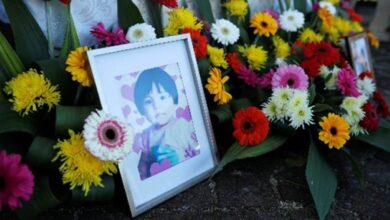Nayib Bukele’s Bitcoin City: Is Cryptocurrency Financed City Feasible in El Salvador?
The Salvadoran president presented the project of the first city financed with cryptocurrencies in the world with the aim of strengthening his commitment to Bitcoin and transforming El Salvador.

The world continues its constant evolution and El Salvador wants to be part of it. Photo: IG-nayibbukele, Unsplash
LatinAmerican Post | Yolanda González Madrid
Listen to this article
Leer en español: Bitcoin City de Nayib Bukele: ¿Es factible la ciudad financiada con criptomonedas en El Salvador?
The world continues its constant evolution and El Salvador wants to be part of it. Several months ago, the Central American nation began to adopt Bitcoin as legal tender, a historic fact in the field of cryptocurrencies. However, that has not stopped there, because, in an attempt to consolidate this bet, President Nayib Bukele announced in recent days a much more ambitious project: the construction of the world's first Bitcoin City.
You may also be interested in: Infographic: The Fortunes Of Latin American Presidents
After the news, several doubts arose about its operation, from what the city will be like to what benefits it will have for using only Bitcoin. According to Bukele, the Bitcoin City will be shaped like a currency and will have geothermal energy, restaurants, commercial areas, residential areas, a central square-shaped like the Bitcoin symbol, and even its own airport, thus giving meaning to such an innovative plan that it makes people remember to what Alexander the Great wanted to build with his circular cities. All this would be located in the coastal area of Conchagua, in the department of La Unión, where it will coincide with the Conchagua volcano that will power the city through a geothermal plant.
"If we want Bitcoin to spread around the world, we should build some Alexandrians," the president said during the Bitcoin City announcement. And it is that to start the project, it will be financed by funds based on cryptocurrency, this in order to take advantage of its use and attract investors to the country. In addition, according to the news portal CNBC, the start of construction would be in 2022 and would cost approximately 300,000 bitcoins (more than 15,000 million dollars).
A city without property taxes
Another plan that has already been launched, and that will benefit Bitcoin City, is to issue 1,000 million dollars in 10-year tokenized bonds with 6.5% interest and paid through Blockchain technology from the beginning of 2022. The idea is that half of this income will go towards the purchase of BTC and thus give dividends, while the other half will be invested in energy infrastructure and bitcoin mining. In fact, this last point will be key for the initial funds to arise to build the city.
Likewise, another detail that will be essential to make possible the project devised by Bukele will be the approval of a securities law and the first license to operate the exchanges. El Salvador, last October, owned 1,100 tokens in BTC, a number that will fall short of the ambitions that are in mind for the country to continue growing in all sectors.
On the other hand, one of the points that have attracted the most attention to the project is the elimination of practically all taxes, except VAT. Those referring to housing, income, capital, CO2 emissions, and municipal rates would be located at 0%. As the Salvadoran president explained, in Bitcoin City they will only have VAT, of which "half will be used to pay the municipality's bonds and the rest for public infrastructure and city maintenance."
¡El Salvador será el primer país del mundo en tener una #BitcoinCity!
Estará entre la ciudad de La Unión y Conchagua. Las personas podrán vivir en La Unión pero trabajar en la #BitcoinCity. Pronto empezarán a ver todos los beneficios, cuando el desarrollo y la inversión llegue. pic.twitter.com/21bx7Yc5aJ— Casa Presidencial (@PresidenciaSV) November 21, 2021
Advantages and disadvantages for Salvadorans
The news of Bitcoin City took some by surprise and others with much skepticism. For the most optimistic, the construction of this city can be seen as the city of opportunities for all that it would bring. Even this move by the Bukele government does nothing but bet on the rise in the price of the cryptocurrency in order to obtain more benefits for Salvadorans. Undoubtedly, its development would make the country an attractive place for foreign investors, who could inject income into an economy that once suffered financial chaos.
In turn, if everything that this new city will bring materializes, the Salvadoran people would be on the verge of exponential growth that would place it among the Latin American countries with the best future projection. Many assure that there will be a good quality of life, access to health, access to entertainment, quality public transportation, among others. However, not everything would be pink, since so much investment in the area would make it the most expensive in El Salvador.
The main disadvantage that this would attract is that Bitcoin City is likely to be an exclusive territory that will not be available to all its citizens. As it is a tax-free territory, only those with sufficient capital will be able to acquire the highest proportion of opportunities that arise there. It must be taken into account that moving would imply an additional expense that not all Salvadorans can cover, so its first inhabitants would be upper class, upper-middle-class, and foreigners. Not to mention that its stability will depend heavily on the price of the cryptocurrency.
Finally, everything seems to indicate that El Salvador has taken an important step in its development. Conchagua is one of the most neglected areas at the infrastructure level and now it will have the opportunity to emerge as a prosperous territory, something that intends to spread throughout the Salvadoran territory to bring possibilities for economic growth. Although in the short term the construction of the Bitcoin City will only bring expenses to the country, it is one of the largest economic bets in the history of Latin America.




